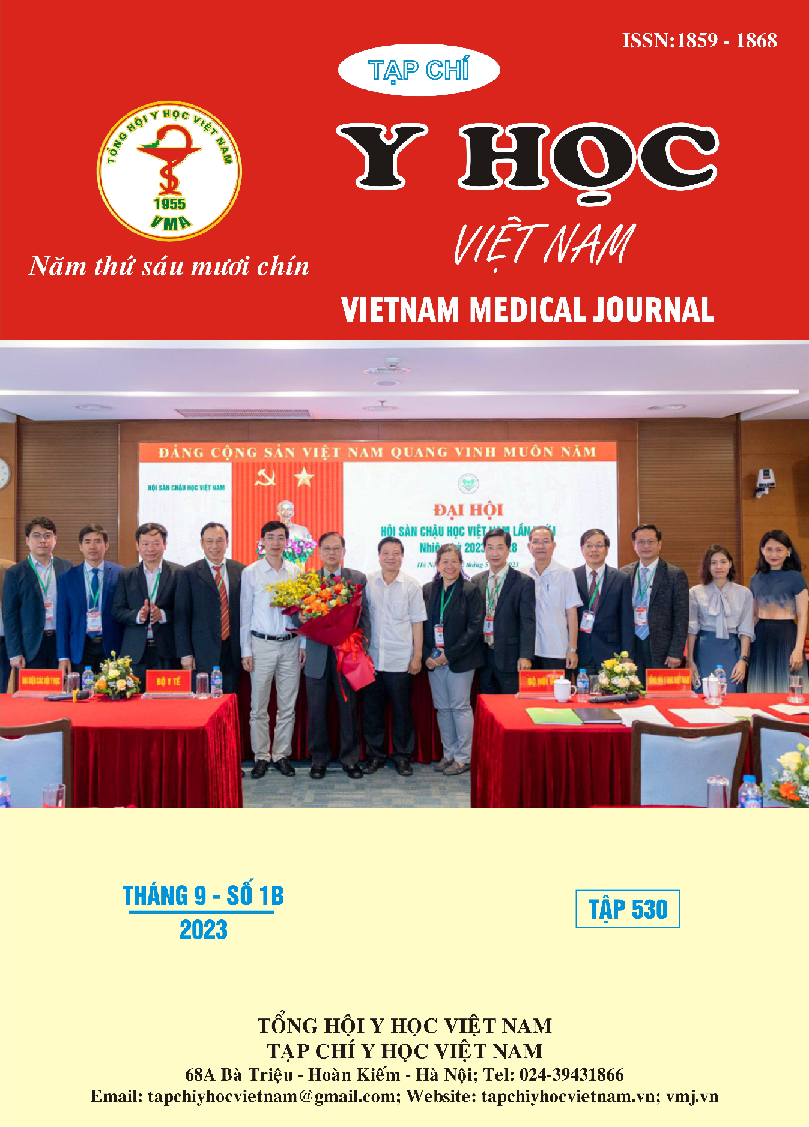KHẢ NĂNG DUY TRÌ HAPPY HOUSE - CAN THIỆP SỨC KHỎE TÂM THẦN TẠI 4 TRƯỜNG TRUNG HỌC PHỔ THÔNG CỦA HÀ NỘI
Nội dung chính của bài viết
Tóm tắt
Mục tiêu: Phân tích khả năng duy trì của chương trình can thiệp (Happy House) về sức khỏe tâm thần (SKTT) với học sinh lớp 10 (HS) tại 4 trường trung học phổ thông (THPT), Hà Nội. Phương pháp: Thiết kế cắt ngang kết hợp định tính và định lượng. Nghiên cứu định tính: phỏng vấn sâu (PVS), thảo luận nhóm (TLN) với HS, cha mẹ HS, giáo viên và lãnh đạo trường. Nghiên cứu định lượng: phát vấn trực tuyến 531 HS theo phương pháp chọn mẫu nhiều giai đoạn. Số liệu định tính được ghi âm, gỡ băng và phân tích theo chủ đề nghiên cứu. Số liệu định lượng được làm sạch và phân tích mô tả bằng phần mềm Stata 14.0. Kết quả: Hầu hết các bên liên quan và bản thân HS đánh giá khả năng duy trì của chương trình là khá cao theo các khía cạnh về tính hữu ích, sự phù hợp của chương trình, mong muốn tiếp tục của các bên tham gia, trường học có đủ năng lực để thực hiện trên cơ sở được đào tạo, chính sách hiện hành thuận lợi, có thể điều chỉnh và lồng ghép để duy trì. Tỷ lệ HS đánh giá chương trình là hữu ích; phù hợp để duy trì và mong muốn tiếp tục chương trình ở mức cao và rất cao lần lượt là 78% và 75%. Kết luận: Chương trình Happy House có khả năng duy trì cao và nên được tham khảo để góp phần cải thiện sức khỏe tâm thần của HS.
Chi tiết bài viết
Từ khóa
: khả năng duy trì, sức khỏe tâm thần, can thiệp Happy House, vị thành niên
Tài liệu tham khảo
2. Trần Văn Công, Nguyễn Thị Hoài Phương, Nam TT. Thực trạng khó khăn tâm lý của học sinh và nhu cầu sử dụng ứng dụng tư vấn tâm lý trong trường học. Tạp chí khoa học và công nghệ Việt Nam. 2019;61(10).
3. Trung tâm truyền thông giáo dục. Chia sẻ kinh nghiệm về triển khai công tác xã hội, tư vấn tâm lý học đường Bộ Giáo dục và Đào tạo2023. Accessed on 24 June at: https://moet.gov.vn/tintuc/Pages/tin-tong-hop.aspx?ItemID=8549.
4. Lã Linh Nga, Trần Đức Thạch, Lã Thị Bưởi, Nguyễn Thị Nga, Nguyễn Thanh Hương. Cải thiện sự tự chủ ở vị thành niên: Kết quả chương trình can thiệp sức khỏe tâm thần Happy House tại các trường trung học phổ thông của Hà Nội. Tạp chí Y học Việt Nam. 2023;522(1):351-6.
5. Nguyễn Thu Hà, Nguyễn Quỳnh Anh, Nguyễn Thị Nga, Lã Linh Nga, Trần Đức Thạch, Ian Shochet, et al. Chi phí- hiệu quả của chương trình can thiệp sức khỏe tâm thần vị thành niên trong trường học tại Việt Nam (RAP-V): Kết quả ban đầu từ phân tích xác định. Tạp chí Y học dự phòng. 2022;32(2):139-46.
6. Phạm Xuân Giang, Thảo NTH. Chính xác hóa một khái niệm trong nghiên cứu định lượng. Tạp chí Khoa học và Công nghệ. 2020;46:158-61.
7. Nguyễn Thu Hà. Chi phí – hiệu quả chương trình can thiệp sức khỏe tâm thần vị thành niên trong trường học tại Việt Nam (RAP-V). Hà Nội: Trường Đại học Y tế công cộng; 2022.
8. Herlitz L, MacIntyre H, Osborn T, Bonell C. The sustainability of public health interventions in schools: a systematic review. Implementation Science. 2020;15(1):4.
9. Burckhardt R, Manicavasagar V, Batterham PJ, Miller LM, Talbot E, Lum A. A Web-Based Adolescent Positive Psychology Program in Schools: Randomized Controlled Trial. Journal of medical Internet research. 2015;17(7):e187.
10. La NL, Shochet I, Tran T, Fisher J, Wurfl A, Nguyen N, et al. Adaptation of a school-based mental health program for adolescents in Vietnam. PLOS ONE. 2022;17(8):e0271959.


